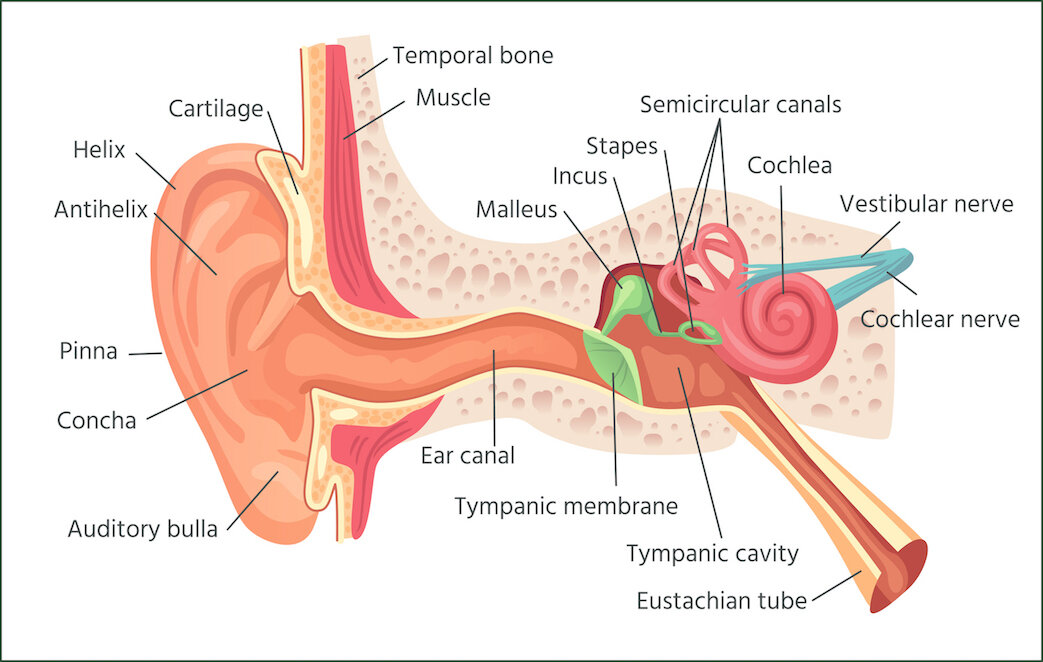The auditory system is one of the human body’s most complex and delicate sensory systems.
Tinnitus (TIN-ih-tus) is the medical term for the perception of sound in one or both ears or in the head when no external sound is present. It is often referred to as “ringing in the ears,” although some people hear hissing, roaring, whistling, chirping or clicking. Tinnitus can be intermittent or constant and its perceived volume can range from subtle to earth-shattering. Approximately 1 out of every 6 people (or 50 million people) in the United States experience tinnitus to some degree.
Tinnitus does not cause hearing loss. It is a symptom of an underlying condition, such as:
Age-related hearing loss
Noise exposure
Ear injury
Head or neck trauma
Turbulence in a carotid artery or jugular vein
Temporomandibular joint (TMJ) issues
Meniere’s disease
Certain types of tumors
Wax build-up
Ototoxic medications


